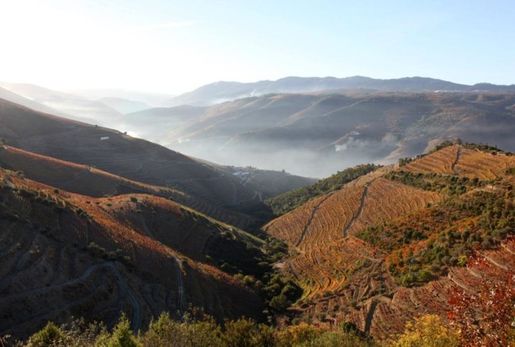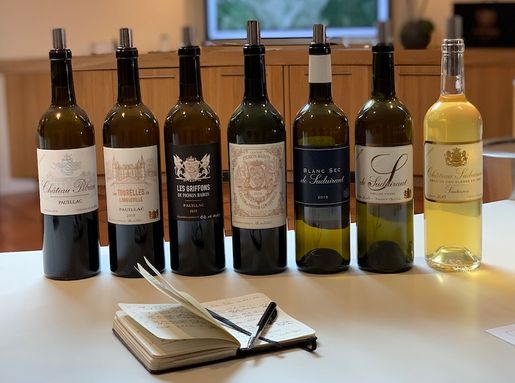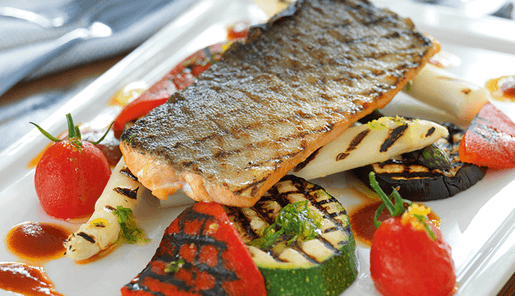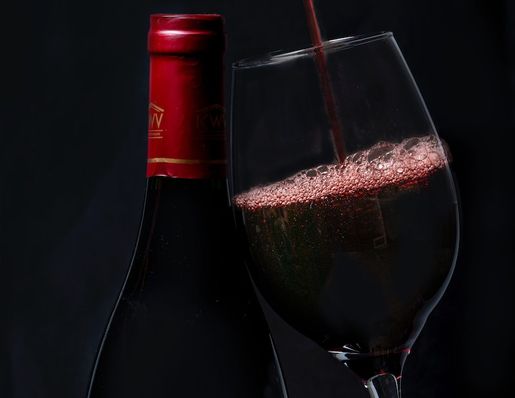
CALL FOR (MORE) ACTION. By Miguel A. Torres – 4th generation and President Familia Torres. Exclusive for Vinbanken.
The first day of the Year we (Vinbanken) invite a special and a important voice to share thoughts with our wine-loving readers. This year, 2020 what is also the start of a new decennium, Vinbanken is very honoured to present Mr. Miguel A. Torres. We can not think of anyone else being so active for the enviroment (for many years already) in the wine industry as Mr. Miguel A. Torres. Follow Familia Torres Wines on Instagram
CALL FOR (MORE) ACTION. By Miguel A. Torres – 4th generation and President Familia Torres
The other day I saw Greta Thunberg’s speech to the delegates of the United Nations’ Climate Change Conference COP25 in Madrid, and I was again impressed. What this young Swedish activist has achieved in the past year is outstanding and very necessary.
Hopefully now the message has reached politicians, companies and individuals: we must decarbonize our worldwide economy in order to contain the global temperature increase at 1.5 degrees at the end of this century. And this requires the involvement of everyone.
We must reduce our emissions drastically and doing a little better is not enough. Sometimes I have the impression that people don’t realize how serious the problem really is. Maybe now after this summer and autumn in Europe with these abnormal and extreme temperature and rain patterns, people start to realize that something is going on (or actually going wrong) and that everyone has to change his or her lifestyle.
Global action - Fridays For Future
We also joined the global climate actions initiated by Fridays For Future, the international movement inspired by Greta Thunberg, by gathering our entire team at our Pacs del Penedès winery and our offices in Vilafranca last September to show our commitment to climate protection.
Our entire team gathered for 4 minutes and 15 seconds, symbolizing the accumulation of 415 ppm of carbon dioxide in the atmosphere, an unsustainable level according to experts. And during my short speech, I not only called for actions with clear and ambitious goals from governments and companies in the fight against climate change, but I also appealed to people's individual responsibility in reducing their own carbon emissions.
Because by making lifestyle changes, as small as they might seem, everyone can contribute: for example, using less air conditioning/heating, changing to LED light bulbs, or eating less meat, is something everyone can start today; and then the next level could be changing to an electric car and installing PV’s (Photovoltaic solar panels) etc.
Torres & Earth program - a contribution to climate work
On a company level we are trying to contribute with our so-called Torres & Earth program.
This we started in 2008, after I saw Al Gore’s movie “An Inconvenient Truth” together with my wife in 2007. And then realizing that we were not doing enough as a winery and that we had to accelerate: as a result the Torres & Earth program was put in place to reduce CO2 emissions by 30% per bottle by 2020 in comparison with 2008.
Since then we have invested more than 15 million euros in the Torres & Earth program and we have managed to reduce our direct and indirect carbon emissions by 27.6% (in 2018 and certified by Lloyd's) across the entire value chain. This is from the vineyard to the final destination.
We reached this reduction through a relatively wide approach of measures which include renewable energies, such as the use of Solar Photovoltaics panels and a bio mass boiler, eco-efficiency in transport such as bottle weight reduction, optimization of water use, adaption measures in the vineyards and biodiversity projects.
Reforestation in Patagonia, Chile
The latter include forest stewardship and reforestation, a good example being our latest project in the Chilean Patagonia, where we started to plant trees in an area of almost 6.000 hectares to recover the forest landscape that was typical for this area and to capture CO2. For the future we will continue to intensify our efforts with our Torres & Earth program to adapt and mitigate climate change and have already set new goals: to reduce our direct and indirect CO2 emissions by 55% in 2030 and by 80% in 2045, compared to 2008.
Editors comment: 6 000 hectars are twice the size of Lidingö, an island in Stockholm.
Viticulture - sensitive farming in warmer conditions
Unfortunately, climate change – but we should actually speak of climate crisis - is a fact and if not immediate measures are taken, the world, but especially viticulture will be heading for big problems and changes.
With rising temperatures many agricultural products – if water is available - will continue to be cultivated without any big noticeable difference to the consumer, while in the case of wine, quality and/or the quantity will be affected.
Practically all vine growers in the world already noticed climate change 3-4 decades ago, as vines are very sensitive to temperature changes. At Torres we have seen an increase of 1,3 C in the average temperature in our region over the past 40 years and now the beginning of our harvest is as an average 10 days earlier than 20 years ago. The problem is that the different parts of a wine grape do not necessarily mature at the same rhythm. When the weather is warmer, the fruit of the grapes will become riper and sweeter earlier. But the seeds and skins ripe slower, which causes a growing imbalance in maturity.
Delayed maturation part of challenge for grapegrowers
So the key word and work is to delay maturation. To achieve that, as a vine grower you basically have 3 options: in the first place to implement viticulture practices that help delaying the ripening of the grapes; through experimenting we saw that different training systems, cover cropping, canopy management, plant density, different rootstocks and even the use of shade-nets help to delay maturation.
The second option is to plant vineyards in cooler areas, for example at a higher altitude, as every 100 m you go up, the temperature will go down by almost 1 C. We have already planted more than 100 hectares in the Pre-Pyrenees at almost 1.000 meters and the results are excellent.
And the 3rd option is to replant towards grape varieties that are so-called ‘late-ripening’ varieties, which is a big advantage as they carry the ‘delayed maturation’ standard in their DNA. In this sense worth mentioning is our research project about ancestral grape varieties that we started 30 years ago. This project was actually set-up to bring back forgotten varieties out of a sort of cultural heritage responsibility; almost an exercise in viticultural archaeology. But as a lucky side-result, we also found that some of these forgotten grape varieties are late-ripening varieties and moreover some of them turned out to be very resistant to drought and heat.
 Mr Miguel A. Torres at Must Fermenting Ideas Wine Summit 2019 (Cascais, Portugal).
Mr Miguel A. Torres at Must Fermenting Ideas Wine Summit 2019 (Cascais, Portugal).
Political action necessary
So, all in all these are of course very helpful adaption measures, but at the same time we all need to drastically reduce our emissions and help to de-carbonize our planet. As already mentioned, action is needed on government, company and individual level.
Everyone can contribute, but I think the key word for the coming years is to work together; also as a wine-sector. Therefore at the beginning of this year Jackson Family Wines and Familia Torres started a new initiative called ‘International Wineries for Climate Action’ to make the collaboration between wineries regarding climate change easier. The idea is that IWCA will be a trigger for other wineries to join and accelerate or to start the implementation of carbon-emissions-reduction-programs. We are now several months later, and it is great to see that already several wineries are in process of becoming an IWCA Applicant or a full Members.
Wineconsumers have to contribute
I very much hope that the vision of the biologist Dr. Jamie Goode (who spoke at our Familia Torres Climate Change Course in 2019) will be a reality in a few years: “to make carbon emissions socially inacceptable, whether they are produced by companies or individuals.”
This certainly involves a change of paradigm, but here the question is: would consumers accept a considerable tax increase on fossil products? Would that stop growth?
As Jeremy Rifkin writes in his last book “The Green New Deal”: the transition from carbon to Renewable Energies (RE) means a big effort: more jobs will be created with the new RE than will be lost with de-carbonisation. But great political will is required…
Previous guest voices on Vinbanken
2016 - Bengt Frithiofsson, good morning wine-lovers!
2017 - Janåke Johansson, highways för creeping insects
2018 - Svenska vinbranschen om vad somär på gång under 2018
2019 - Drew Lambert, the winebusiness in socialmedia
Main Photo: Ralf Schultheiss
Short video on Youtube with Mr. A. Miguel Torres at MUST-Fermenting Ideas Wine Summit 2019, Cascais Portugal.















